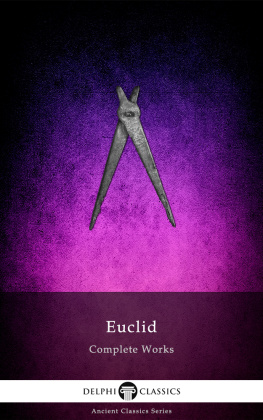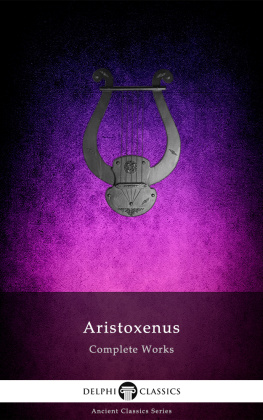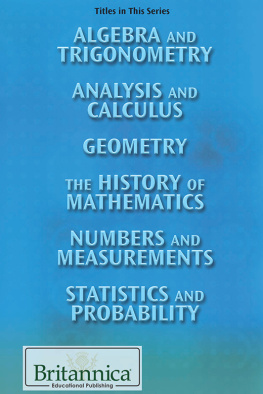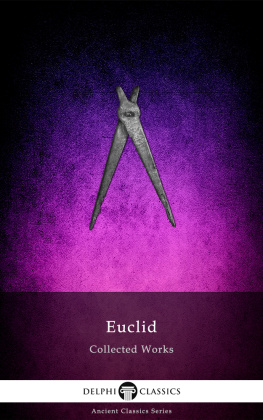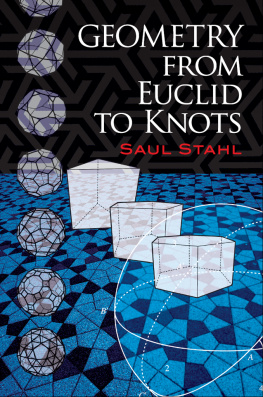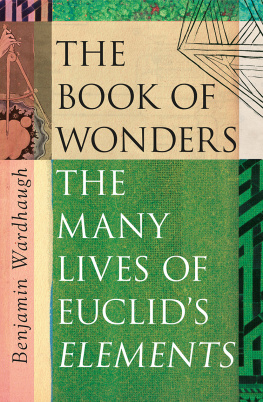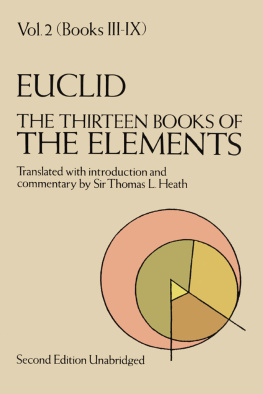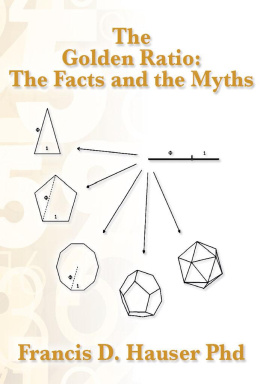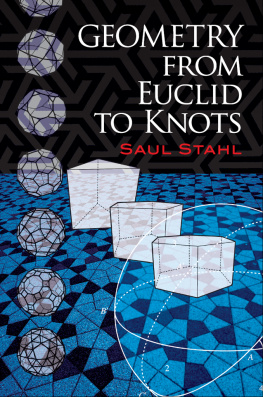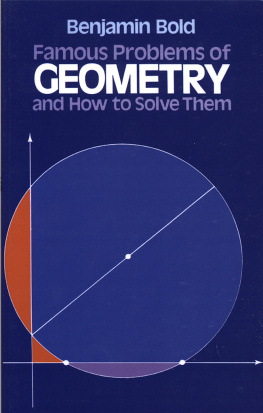
The Collected Works of
EUCLID
(fl. 300 BC)

Contents

Delphi Classics 2019
Version 1

Browse Ancient Classics







The Collected Works of
EUCLID

By Delphi Classics, 2019
COPYRIGHT
Collected Works of Euclid
First published in the United Kingdom in 2019 by Delphi Classics.
Delphi Classics, 2019.
All rights reserved. No part of this publication may be reproduced, stored in a retrieval system, or transmitted, in any form or by any means, without the prior permission in writing of the publisher, nor be otherwise circulated in any form other than that in which it is published.
ISBN: 978 1 78877 946 3
Delphi Classics
is an imprint of
Delphi Publishing Ltd
Hastings, East Sussex
United Kingdom
Contact: sales@delphiclassics.com

www.delphiclassics.com
The Translations

Roman remains at Tyre, Lebanon very little information regarding Euclids life has survived. A biography by an Arabian author mentions his birth town as Tyre, though this is doubted by many.

A naval action during the siege of Tyre (332 BC) by Andr Castaigne
Elements

Translated by Thomas Heath, 1908
This famous mathematical treatise consists of 13 books and is attributed to the ancient Greek mathematician Euclid of Alexandria (c. 300 BC). It is composed of a collection of definitions, postulates, propositions and mathematical proofs of the propositions. The oldest extant large-scale deductive treatment of mathematics, Elements covers plane and solid Euclidean geometry, elementary number theory and incommensurable lines. The treatise has proven instrumental in the development of logic and modern science and its logical rigor would not be surpassed until the nineteenth century.
It was one of the very earliest mathematical works to be printed after the invention of the printing press and it has been estimated by some to be second only to the Bible in the number of editions published since its first printing in 1482, with the number reaching well over one thousand. For centuries, when the quadrivium was included in the curriculum of all university students, knowledge of at least part of Elements was required of all students. Not until the twentieth century, by which time its content was universally taught through other school textbooks, did it cease to be considered something all educated people should read.
Today, scholars believe that Elements is largely a compilation of propositions based on works by earlier Greek mathematicians. Proclus (412485 AD), a Greek mathematician that lived around seven centuries after Euclid, wrote in his commentary on the Elements : Euclid, who put together the Elements , collecting many of Eudoxus theorems, perfecting many of Theaetetus, and also bringing to irrefragable demonstration the things which were only somewhat loosely proved by his predecessors. Pythagoras (c. 570495 BC) was likely the source for most of the first two books, while Hippocrates of Chios (c. 470410 BC) was the source of Book III. Eudoxus of Cnidus (c. 408355 BC) is believed to have inspired Book V, while Books IV, VI, XI and XII probably came from other Pythagorean or Athenian mathematicians.
In the fourth century AD, Theon of Alexandria produced an edition of Euclid which was so widely used that it became the only surviving source until Franois Peyrards 1808 discovery at the Vatican of the Heiberg manuscript, which was not derived from Theons text. This manuscript originates from a Byzantine workshop around 900 and it is the basis of all modern editions. Papyrus Oxyrhynchus 29 is a tiny fragment of an even older manuscript, yet it only contains the statement of one proposition.
Elements is still considered a masterpiece in the application of logic to mathematics. In historical context, it has proven extremely influential in many areas of science. Prominent scientists such as Nicolaus Copernicus, Johannes Kepler, Galileo Galilei and Sir Isaac Newton were all influenced by Elements , and applied their knowledge of it to their own work. Mathematicians and philosophers, including Thomas Hobbes, Baruch Spinoza, Alfred North Whitehead and Bertrand Russell have attempted to create their own foundational Elements for their respective disciplines, by adopting the axiomatized deductive structures that Euclids work introduced.
The ascetic beauty of Euclidean geometry has been regarded by many in western culture as a glimpse of an otherworldly system of perfection and certainty. Abraham Lincoln reportedly kept a copy of Euclid in his saddlebag and liked to study it late at night by lamplight; he liked to say to himself, You never can make a lawyer if you do not understand what demonstrate means; and I left my situation in Springfield, went home to my fathers house, and stayed there till I could give any proposition in the six books of Euclid at sight. Einstein recalled a copy of Elements and a magnetic compass as two gifts that had a great influence on him as a boy, referring to the Euclid as the holy little geometry book.

Bust of Pythagoras of Samos in the Capitoline Museums, Rome Pythagoras (c.570 c.495 BC) was an ancient Ionian Greek philosopher and the eponymous founder of Pythagoreanism. His ideas survive in the first two books of Elements.

Next page
